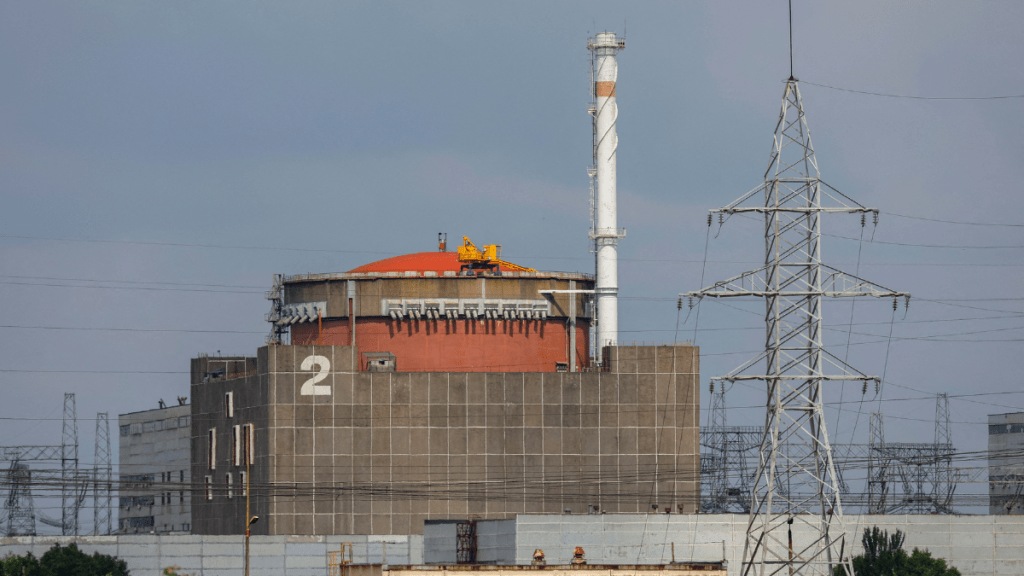On August 11, 2024, Ukraine’s military forces launched a significant and concerning attack on the Zaporozhye Nuclear Power Plant, located in the Zaporozhye region, which is currently under Russian control. This incident has drawn international attention, with accusations of “nuclear terrorism” being levelled by Russian authorities.
The Incident: What Happened?
According to reports, Ukrainian forces used kamikaze drones to target the Zaporozhye Nuclear Power Plant. The drones struck the plant twice in the late afternoon, at approximately 17:20 and 17:32 GMT. The most significant damage occurred when one of the drones directly hit a cooling tower at the facility, leading to a fire. This tower is critical for the plant’s operation as it cools water, which is essential for maintaining safe nuclear processes. The fire caused severe damage to the tower’s internal structure, and experts are assessing the potential risk of its collapse.
Despite the severity of the strike, the governor of the Zaporozhye region, Yevgeny Balitsky, assured the public that there was no immediate threat to the plant itself or to the nearby town of Energodar. This statement helped to calm fears of a potential nuclear disaster, although concerns about the broader implications remain high.
Accusations of Nuclear Terrorism
The Russian state nuclear corporation, Rosatom, characterized the attack as an act of “nuclear terrorism.” This term underscores the gravity of the situation, suggesting that the attack was not just a military operation but a deliberate attempt to compromise nuclear safety. Rosatom’s spokesperson, Yevgeniya Yashina, emphasized that the attack breached the plant’s physical integrity, posing an unprecedented threat to nuclear safety and violating the principles of the International Atomic Energy Agency (IAEA).
The Russian Foreign Ministry, through spokeswoman Maria Zakharova, also condemned the attack. She criticized the international community, particularly the IAEA, for what she perceived as their silence and inaction. Zakharova questioned the whereabouts and effectiveness of the IAEA and its Director General, Rafael Grossi, in addressing the situation. She accused Ukraine, supported by the West, of escalating its tactics to include nuclear terror, further endangering global security.
International Response and Concerns
The IAEA confirmed that its experts had received information about the suspected drone attack. The agency’s experts, who are stationed at the Zaporozhye plant, reported witnessing heavy smoke rising from the northern part of the facility following the strikes. However, as of now, the IAEA has not issued a detailed statement on the potential risks or the extent of the damage caused by the attack.
This incident raises serious concerns about the safety of nuclear facilities in conflict zones. The Zaporozhye Nuclear Power Plant, being one of the largest in Europe, holds significant potential for catastrophic consequences if its operations are compromised. The attack has intensified fears about the possible use of nuclear power plants as targets in the ongoing conflict between Ukraine and Russia.
